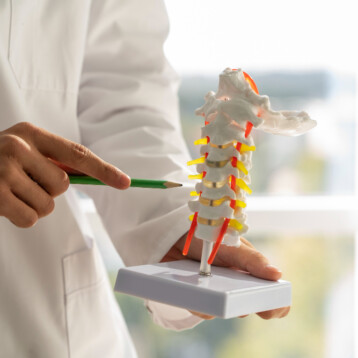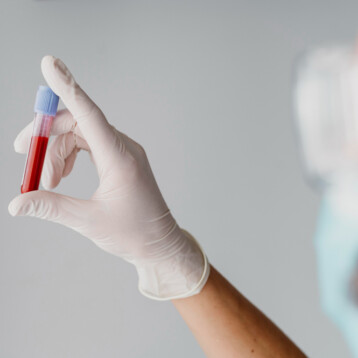
We are seeing boundless leaps in what technology can do for us in every aspect of our lives now. Not just in terms of robotic cars, as well as the infinite amounts of ways that technology is improving communication, of one aspect of our lives that technology is really having an impact is our health. And, for those people who are bemoaning the impact of technology on our health, in the ways that smartphones are interrupting our melatonin signals, there are many other ways that tech is improving our relationship with a whole manner of things relating to our health. From creating animal friendly meat to the flavoring processes that have populated the fast food industry, to the more obvious ones such as genetic modifications, meaning that food can go further and is healthier for the planet. But what have we seen in terms of tech that will benefit us, as people, on a daily basis?
The Motivation Factor
When we think of health, we think of exercise. And yes, while technology has had a major impact on the fact that we tend to sit down more to use it nowadays, there is a lot of tech that is pushing us in the right direction. From the primitive pedometers, all the way through to the almighty Fitbit, but there are also apps that aren’t just helping us to track our progress in terms of losing weight, but they are handy little lexicons of exercises that fit in your back pocket. In fact, a typical app isn’t just a database of your best run times, but they can provide hints and tips, moves and methods to help you break that next plateau. Even an app like Google Now introduced a fitness tracking feature, and while lots of these apps aren’t particularly sophisticated, these apps all have one thing in common. The motivation factor is all about breaking your next record, by seeing what you’ve done as far as steps, miles, and so forth is concerned.
Breaking Down The Barrier Between Patient And Doctor
Katie from civilizedhealth.com agreed “If people understand their symptoms more and how to better communicate them to their doctor, it leads to a better prognosis and treatment. I believe the internet offers the capabilities to achieve this.” To go back to the app trend, there are now trials being done with certain health organizations in how we can communicate with our doctors. This means that it’s benefiting both doctor and patient because the patient can get through to the doctor right away, but from the doctor’s perspective, there is a major reduction in waiting times. In addition to this, the resources are becoming more infinite that now this could be argued to be a bad thing, especially as those people who try to self-diagnose by googling their symptoms. But with the right resources, especially the ones endorsed by health authorities, you can get a wealth of excellent information at your fingertips. Even certain psychological conditions like common types of eating disorders, anxiety, or particular areas of depression have a wealth of online information. One of the big things in a lot of people that is that fear of going to the doctor, either because of an irrational fear of the place itself, or because there might be actually something wrong with them, or because they feel like they are wasting the doctor’s time. So, by going online and doing a little research in if they actually need help or not, going online there are a lot of things. Again, this is when the resources are useful. In addition to these, there are various online services that doctors now provide, including chat boxes. Lots of people are quite mistrusting about the reliability of online resources, so by speaking to a doctor in this manner, they can decide whether it’s an emergency or not.
The Online Information About Diet
Now, this truly is a double-edged sword in the modern age. For those that are keen to start a new diet or eating regime, the first instinct is to go online and research the pros and cons of said diet. In one way, by going online and doing some research into if you may have a particular food intolerance, learning that other people are going through the same thing opens you up to a world of new possibilities. As a result, many people have discovered that they are intolerant to gluten, or lactose, or just find that they have a specific reaction to one particular food. This is meant that people are living happier lives because they’ve managed to diagnose a specific problem.
But, the word “diagnose” in this respect is quite a precarious one. Because lots of people are making self-diagnoses online when in actual fact they don’t have any serious medical problems, to begin with. Sure, there are plenty of resources where you can find a way of eating that suits your lifestyle, especially if you are trying to get fit and healthy, but there is also a lot of false information out there.
But there have been plenty of people who have made successes of themselves, by trying a leftfield diet, such as the high fat, low carb diet, which has resulted in lots of weight loss successes. Now, that’s not to say that every resource online is questionable, because there are things like Ted Talks that have really pushed leftfield diets into the mainstream. In addition to these, some podcasts and presenters are living this lifestyle and are trying their best to communicate to other people the benefits of these.
There are people like Dave Asprey who are pushing the benefits of biohacking, where people are using tech to improve their bodies and minds. And Asprey has a wealth of resources online, including an app that alerts you if you may have an intolerance to a certain food, and a podcast, which has thousands of subscribers. And people are trying these lifestyles and having fantastic results, even though some of the approaches aren’t considered to be the “normal” way of getting healthy. One thing is for sure, the various amounts of information we find now are opening up many people’s eyes to the potential for what our bodies and minds can do.
Is Tech Helping Us Improve Our Health?
Of course, in addition to the technology used in hospitals, from x-ray machines to electronic health records, to the various research being undertaken, such as genome sequencing, the technology that we have access to now is far more advanced than anything five years ago. Yes, one angle of it is just the standard Fitbit, but with this whole new generation of self-proclaimed biohackers, we are seeing tech being used to help improve our heart rate at home.
The heart rate variability monitor is something that has been spoken of very excitedly in some circles, because it is, in a way, a method to hack your heart rate so you can achieve all the benefits of meditation without actually having to do it. Of course, the more sophisticated the technology, the higher the price. But there is heart rate variability apps available that you can install on your iPhone. This means that finding a little sense of meaning to life and improving our health a little bit more is a couple of swipes away.
What can’t be argued against is the amount of information we have at our fingertips now. And this, combined with the health markets, there is going to be an influx of information online and in a form that is geared towards people with certain health conditions. In one way, this is a fantastic thing because people are getting a better understanding of what they can do to function that little bit better. But in another way, it provides us with too much to pick and choose from so we can form our own opinions on what is good and bad for us. And without a healthcare professional, this can be dangerous, but the more that tech develops, the more exciting the next discovery will be about how we can improve our health.










